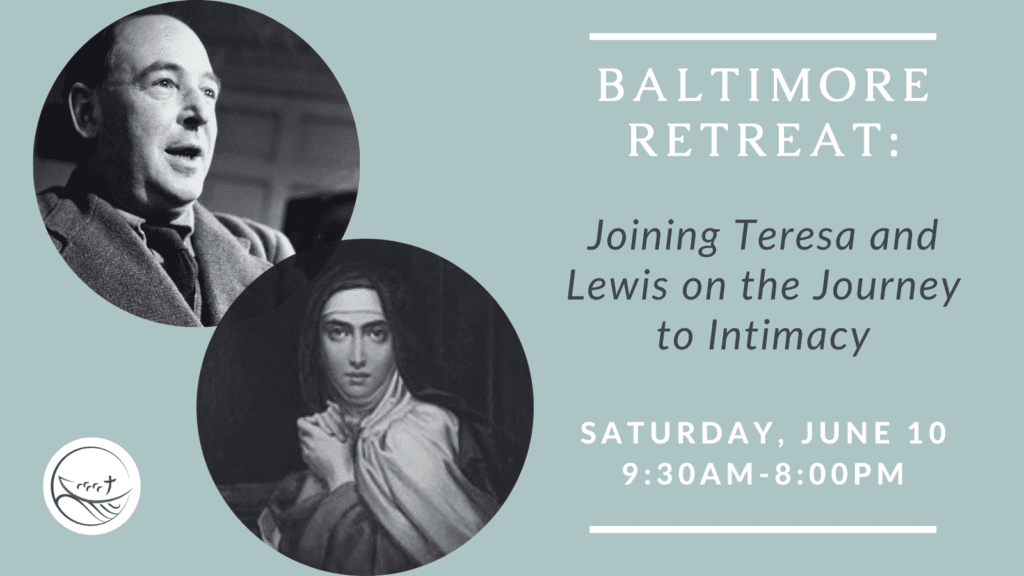
We are desiring beings. We bear God’s image in longing for connection and beauty, for shalom/wholeness in its fullest sense; where God’s unfailing steadfast love is embraced and shared by all. Where justice in its purest sense of love being realized in all our relationships. Where each of us feels seen, safe, secure, and soothed as Curt Thompson expresses so confidently in his writings and speaking. Where perfect love casts out all fear and all our lives overflow with joy and peace and goodness in the Holy Spirit, the very kingdom of God (Rom. 14:27).
As I dare to express my longings for intimate secure attachment with God and with those I interact with day in and day out my memory is drawn to CS Lewis’s opening to Weight of Glory where he wrote, “I am almost committing an indecency. I am trying to rip open the inconsolable secret in each one of you-the secret that hurts so much that you take revenge on it…; the secret also which pierces with such sweetness that when, in very intimate conversation, the mention of it becomes imminent, we grow awkward and affect to laugh at ourselves; the secret we cannot hide and cannot tell, though we desire to do both.”
I owe Lewis an infinite debt for awakening in me an awareness of the depth of my longing. Lewis was a man who experienced great pain and loss in his life. He lost his beloved mother to cancer at the age of 9 and was abandoned to boarding schools where he was bullied for not being athletic. He suffered through the horrors of WWI losing his closest friends. He cared for his only beloved brother through repeated bouts of alcoholic binges. And then late in life he suffered through the loss of his beloved wife Joy to cancer.
Ruth Pitter, a poet and close friend of Lewis’s shared of Lewis, “In fact his whole life was oriented and motivated by almost uniquely-persisting child’s sense of glory and of nightmare. The adult events were received into a medium still as pliable as wax, wide open to glory, and equally vulnerable, with a man’s strength to feel it all, and a great scholar and writer’s skills to express and interpret.”
Lewis spoke of his imagination being baptized, awakened to holiness by George MacDonald’s fairy story Phantastes. He became aware of his longings that would eventually lead him “into the region of awe” where the reality of the mystery of God’s unseen loving presence wounded his heart. Phantastes closes with the beautiful image of an elderly wise woman with young eyes whose not physically present speaking the words of assurance to the Anodos the main character, “Good is coming, Anodos. Good is always coming if we only have the courage and simplicity to receive it.”
Lewis’s journey of longing would lead him to pursue MacDonald’s love of the great Christian “mystics” including Clement, the desert fathers and mothers, Augustine, Aquinas, Bernard of Clairvaux, Teresa of Avila, The Cloud of Unknowing, Walter Hilton’s Scale of Perfection, St. John of the Cross, Ignatius of Loyola, Julian of Norwich, St. Francis of Assissi …
I am struck by Iain McGilchrist’s confident assertion as one of the leading neuroscientists of our day that imagination is the human capacity to connect with reality. This echoes LeAnn Payne, a woman whose holy imagination was deeply informed by Lewis’s writings, to describe the true imagination as the capacity to see the unseen real.
How do we describe realities that are unseen? Realities that the Bible speaks of that we have yet to realize in our own experience? The reality of the kingdom of heaven? Of God Himself, Father, Son and Holy Spirit? The cloud of witnesses that cheers us on? Of our new bodies perfectly designed to live in the new heavens and earth? How does one describe a soul awakening to God’s presence, the numinous reality that takes us into awe and wonder? Such glorious realities.
We hope you’ll mark your calendar as we go deeper into these realities at our upcoming retreat in Baltimore on June 10th.
